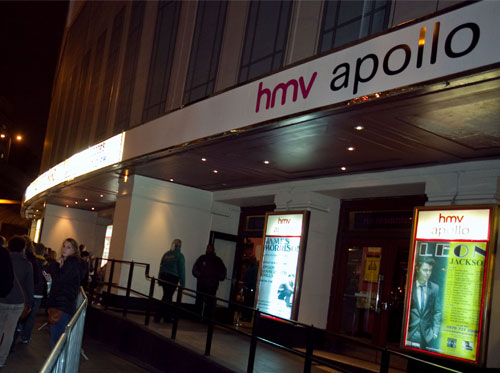
HMV: We're Not Pulling Out of Entertainment Retail
'We are actually talking about a relatively small number of stores across HMV and Waterstone's chains - less than 10 per cent of our combined estates,' HMV spokesperson Gennaro Castaldo explained to us. But which stores are we talking about here? According to Castaldo, they are indeed 'likely to be located primarily in large-city conurbations and may be in close proximity to each other - thus resulting in a degree of duplication in relation to local demand.'In fact, Castaldo says that 'the vast majority of HMV stores around the country will not be affected, and we will look to ensure that the specialist offer and service that we make available to our customers in these locations is maintained.' The strategy will apparently even include HMV making efforts to 'redeploy any affected staff where we possibly can.'
In short, HMV is shutting down its surplus stores in towns with more than one HMV, and attempting to relocate staff into the remaining stores. We're also talking about a relatively small number of stores here. Okay, so HMV is clearly not making the money that it expected to this year, but it also doesn't look as though its high-street business is on its deathbed either.
Castaldo was also keen to emphasise that the move 'in no way signals any intention to pull out of entertainment retail.' HMV does have an online store, but Castaldo insists that its high-street retail business 'remains at the heart of our offer,' and that the store closures were really a measure 'aimed at safeguarding our core business.'
HMV says it's undergoing a 'transformation' into a broad entertainment brand, encompassing venues such as the HMV Apollo
That said, Castaldo did also point out that HMV is currently in the middle of a 'transformation into a broad-based entertainment brand that now also encompasses live music venues and festivals.' The company knows that it needs more than its high-street business to keep making a profit, but that doesn't mean that the high–street business is going to disappear completely.
It's also worth pointing out that HMV has been going since 1921, starting life as a record label called The Gramophone Company. It's also produced a wide range of products in its lifetime, including black and white televisions. It's a company that's regularly adapted to changing market conditions, and it's one that's likely to stay afloat, even if that means some changes.
Like many people, I much prefer online shopping to getting crushed in an store while buying overpriced goods, but that doesn't mean that high-street retailers are on their last legs. With so many other factors contributing to poor retail sales this year, it's not a clear-cut situation that you can put wholly down to competition from Amazon and Play.com, although online retail has undoubtedly played a part in this.
Basically, if you live in a smaller town with an HMV, then your store is probably going to remain there. If you live in a larger town with several HMV stores, then some of them might be closed down. High-street retail isn't as strong as it used to be, but it's clearly still got some life left in it yet.

MSI MPG Velox 100R Chassis Review
October 14 2021 | 15:04









Want to comment? Please log in.